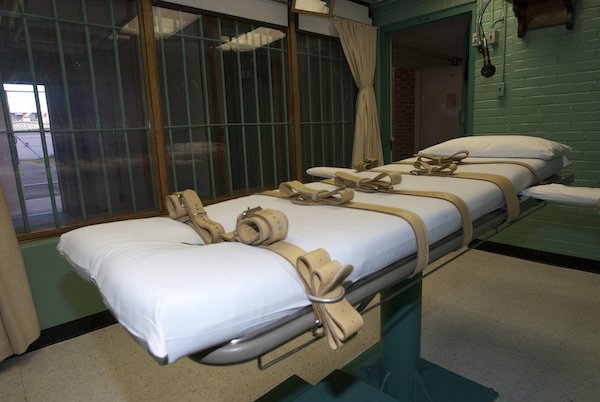
WASHINGTON -— Three of the largest manufacturers of medical-grade nitrogen gas in the U.S. have barred their products from being used in executions, the British daily newspaper, The Guardian, reported.
The ban was enacted after Alabama recently used nitrogen gas in the execution of death row inmate Kenneth Smith.
Four states allow the use of nitrogen in executions — Alabama, Mississippi, Oklahoma, and now Louisiana. In early March, Louisiana Gov. Jeff Landry signed a bill expanding the state’s execution methods to include nitrogen gas and electrocution.
Alabama became the first state to carry out an execution using nitrogen gas in January and people who witnessed the execution said the prisoner convulsed on the gurney for several minutes.
Three nitrogen manufacturers told the Guardian that they have put in place mechanisms to prevent their product from being obtained by corrections departments. The move is similar to actions by companies that produce drugs used in lethal injections that do not want their products used in executions.
States that have added nitrogen gas as an execution option have said they wanted to add this method because lethal injection drugs are often difficult to obtain.
The state of Alabama also plans to use nitrogen gas in an upcoming execution that has not yet been given a date.
In mid-February, an Alabama death row inmate filed a lawsuit against the state, challenging the constitutionality of nitrogen gas executions. The suit said the prisoner put to death by this method shook violently for several minutes in “a human experiment that officials botched miserably.”
The execution method calls for placing a respirator-type face mask over the inmate’s nose and mouth to replace breathable air with nitrogen, causing the person to die from lack of oxygen.
The United Nations Human Rights Council cautioned against this method, saying it would violate the prohibition on torture and other cruel, inhuman, or degrading punishment. They also said using this gas would “result in a painful and humiliating death.”
In 2018, when Oklahoma’s legislature passed the use of nitrogen gas in executions, Sister Helen Prejean, a Sister of St. Joseph and longtime death penalty opponent, said the decision “ignores the unavoidable truths that there is no humane way to kill a conscious, thinking human being, and that the entire apparatus of capital punishment is deeply flawed and deeply wounding to us all.”
